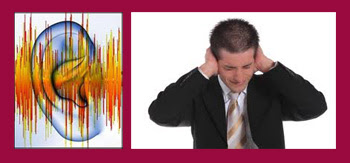Tinnitus Treatments 2/3: Other Approaches
In this three-part series, I describe the main treatments
for constant (subjective) tinnitus, covering both conventional and alternative
medicine approaches. As with the first post, most of these have had relative
success—typically temporary and with results that vary widely.
Beyond Sound Therapies
There are additional treatment options within traditional
medicine worth considering:
2. Surgery
- Cochlear
implants are sometimes recommended for those with both tinnitus and
hearing loss. By restoring an electrical signal to the auditory nerve,
they may help mask tinnitus while rewiring the brain’s circuits.
- Auditory
nerve sectioning is another option, though it doesn't always eliminate
tinnitus.
- Tumor
or vascular malformation removal near the ear may also be required in
certain conditions.
Psychology, Neurology & Psychiatry
When the limbic system (our emotional center) is involved,
tinnitus can become a serious issue. Here are common professional
interventions:
- Stress,
depression, and anxiety management, especially when these are
underlying causes of tinnitus.
- Cognitive
Behavioral Therapy (CBT): Helps correct unhelpful behaviors and
irrational beliefs about tinnitus.
- Third-generation
CBT (also called contextual or "third-wave" therapies)
places more focus on behavioral change processes.
- Interoceptive
exposure is a technique where patients intentionally focus on
tinnitus sounds to change their emotional reaction and reduce
negativity—promoting acceptance and habituation.
- Mindfulness-based
cognitive approaches. There is scientific evidence that mindfulness
helps ease tinnitus symptoms.*
CBT is often the most beneficial treatment for many patients, helping them cope and built acceptance.
- Mindfulness
(also called full-consciousness or mental wellness) stems from Buddhist
meditation practices.
- Neuro-Linguistic
Programming (NLP) includes tools like "reframing," helping
patients reinterpret their experiences.
- Neurologic
or psychiatric treatment is used when a specific underlying condition
is identified.
* See here a video by Dr. Fatima Husain from the
University of Illinois.
Pharmaceuticals
Tinnitus medications are varied, and effectiveness depends
greatly on the individual.
They generally fall into categories like: antiarrhythmics,
anticonvulsants, antidepressants, antiglutamatergics, dopaminergics,
anti-inflammatories, anesthetics, antihistamines, benzodiazepines, diuretics,
corticosteroids, anticoagulants, anticholinergics, antibiotics, vasodilators,
neuroprotectors, anxiolytics, antipsychotics, anti-vertigo agents, herbal
products, vitamins, and mineral supplements.
Some common options:
- Melatonin:
a lab-synthesized hormone for sleep and depression regulation.
- Vincamine:
a plant-derived drug that promotes cerebral circulation and increases
blood pressure.
- Coenzyme
Q10: supports auditory blood flow and has antioxidant benefits.
- Rheologically
active agents: sometimes useful after acoustic trauma.
- Symptom-based
medications: prescribed when tinnitus is a side effect of another
neurological or psychiatric illness.
Treating emotional and psychological side effects is often a
key reason for prescribing such drugs.
Important note: Medication use should be carefully
evaluated and overseen by a specialist, as some drugs may worsen tinnitus or
cause unwanted side effects.
General Support (Counseling)
A specialist-led counseling process can help patients manage
stress, depression, and loss of focus caused by tinnitus. This support is less
about curing tinnitus and more about helping the patient live with it
successfully. CBT is frequently part of these sessions, aimed at correcting
unhelpful behaviors and beliefs. Regardless of the tinnitus cause, it’s
essential for patients to understand how and why it exists.
.


Comments